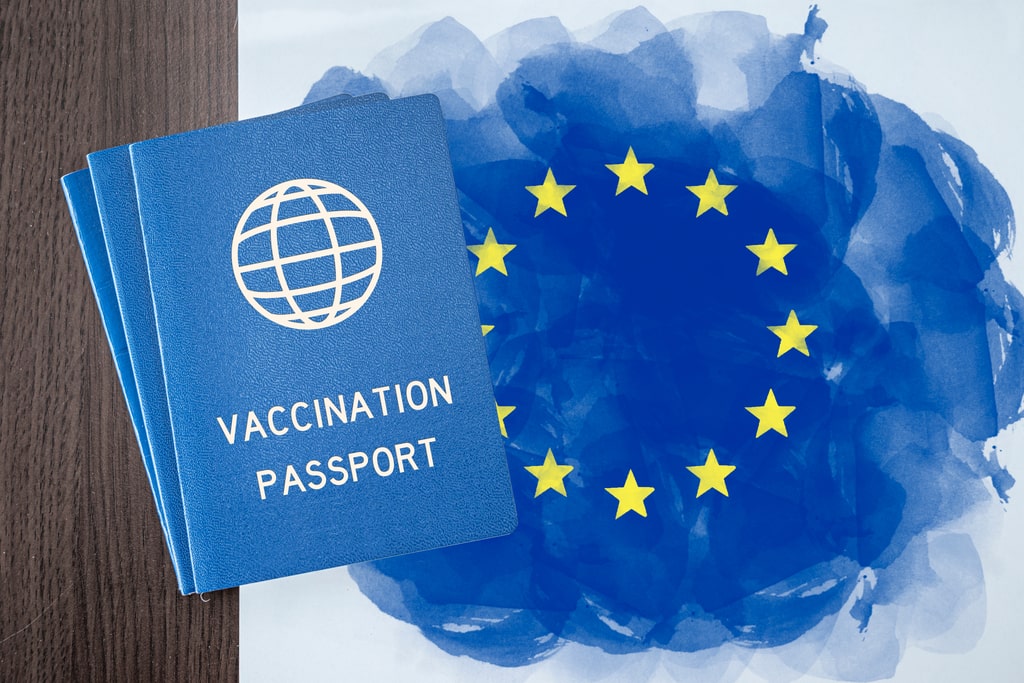
EU adopts the vaccine passport, it will last 12 months and will be available in digital or paper form
A single Covid passport for the whole European Union, to be able to travel for leisure or business. The European Green Pass has become a reality, thanks to the agreement found by Parliament, the Commission, and the European Council on the “vaccine passport”, which will enter into force on 1 July, in time for the summer holidays. It will be called Eu Digital Covid Certificate and will be available in two formats: digital and paper. To avoid fraud and falsification, it will have an electronic seal that will certify its authenticity. To safeguard privacy, the personal data contained in the digital passes cannot be stored in the countries of arrival.
His task will be to certify the vaccination against COVID19 Pandemic or even the negative result of a swab or the healing after the infection. However, possession of the certificate will not be a pre-condition for freedom of movement in the EU nor will it be considered a travel document, but its possession will simply allow the holder to be able to move within the European Union without too many obligations, for example, quarantine or isolation. The great advantage of the Covid “passport” will be that it is uniquely accepted in Europe.
Negotiators from the European Parliament and the Council reached a provisional agreement on the EU digital Covid Certificate to facilitate free movement during the pandemic. The certificate will be available in both digital and paper format. It will certify whether a person has been vaccinated against the coronavirus or has a recent negative test result or has recovered from the infection. In practice, these are three distinct certificates. The common EU framework will allow member states to issue these certificates which will then be accepted in other EU countries.
Related Posts
According to the agreement, the regulation of the EU digital Covid Certificate will remain in force for 12 months. It will not be a precondition for exercising the right to free movement and will not be considered a travel document. To support the availability of “affordable and accessible tests“, the European Commission has pledged to mobilize “at least € 100 million” under the Emergency Support Tool for the purchase of tests to issue EU certificates.
Such funding should especially benefit people who daily or frequently cross borders to go to work or school, visit close relatives, seek medical care, or care for loved ones, as well as essential workers. whereas, if necessary, further funding beyond 100 million could be mobilized, subject to the approval of the budgetary authorities. EU countries must not impose additional travel restrictions, such as quarantine, self-isolation or tampons, “unless they are necessary and proportionate to safeguard public health” in response to the Covid pandemic, also taking into account the available scientific evidence, “Including epidemiological data published by the European Center for Disease Prevention and Control (Ecdc)”. Such measures should be notified to the other Member States and the Commission at the latest 48 hours in advance.
EU countries must accept vaccination certificates issued in other member states for people who have received a vaccine authorized by the European Medicines Agency (EMA) (currently Pfizer-BioNTech, Moderna, AstraZeneca, and Janssen). It will be up to the EU countries to decide whether to also accept the certificates of vaccinations carried out with other vaccines used according to the national emergency authorization procedures or with those listed by WHO for emergency use.
The certificates will be verified to prevent fraud and falsification, as well as the authenticity of the electronic codes included in the document. The personal data obtained from the certificates cannot be stored in the EU countries of destination and there will not be a central database established at the EU level. The list of entities that will process and receive the data will be public so that citizens can exercise their data protection rights under the General Data Protection Regulation (GDPR).
The political agreement must now be formally adopted by the European Parliament, in the Freedom Committee, it will be scheduled for next Tuesday. The final vote of the plenary of the European Parliament is instead expected during the plenary session from 7 to 10 June. It must also be approved by the Council.The regulation will enter into force on 1 July, with a phasing-in period of six weeks for issuing certificates for the Member States that need additional time.




